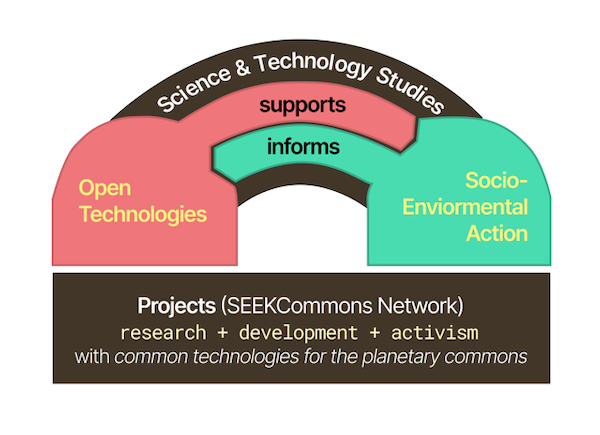
Common(s) in Science and Technology? Dispatches from the SEEKCommons Network
This is the Introduction post to our new SEEKCommons series. The posts in this series are forthcoming, and will be linked here in this Introduction as they are published over the next several months. What does the “common(s)” mean for the present and future of science and technology? Are there novel dynamics at play in how knowledge infrastructures are being built, controlled, and contested today? It is with the goal of exploring these interconnected questions that we conceived of the Socio-Environmental Knowledge Commons (SEEKCommons) network—a collective platform where the “common” stands as a political horizon for collaborative social, technical, and environmental work. (read more...)
